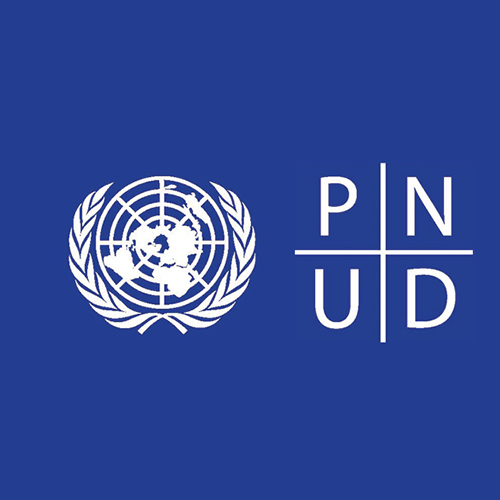Le PNUD recrute un expert – évaluation finale d’un projet investissements privés dans le secteur des énergies renouvelables – offre en anglais Retour vers les opportunités
Programme des Nations Unies pour le Développement-PNUD
Lance Offre d'emploiÉchéance
25 Août 2014 Il y a 12 ans
Partager l'opportunité sur
Détails de l'opportunité
RE-ADVERTISEMENT – EXPERT FOR THE PROJECT’S FINAL EVALUATION |
|
| Lieu : | Tunis, TUNISIE |
| Date limite de candidature : | 25-Aug-14 |
| Catégorie supplémentaire | Environnement et Energie |
| Type de contrat : | Individual Contract |
| Niveau du poste : | International Consultant |
| Langues requises : |
Anglais |
| Durée prévue de la mission : | 30 days, extending over a 9-weeks period |
Historique |
|
| UNDP-GEF’s M&E policy is available on-line at: http://www.undp.org/gef/05/monitoring/policies.html. In accordance with the policy, all projects are encouraged to conduct final evaluations. In addition to providing an independent in-depth review of implementation progress, this type of evaluation is responsive to GEF Council decisions on transparency and better access of information during implementation.
The Monitoring and Evaluation (M&E) policy at the project level in UNDP/GEF has four objectives:
Final evaluations are intended to identify project results, assess progress regarding final objectives, document lessons learned (including lessons that might improve design and implementation of other UNDP/GEF projects), and to make recommendations regarding specific actions that might be taken to improve final results and products of the project. It is expected to serve as a means of validating or filling the gaps in the initial assessment of relevance, effectiveness and efficiency obtained from monitoring. The Private Sector Led Development of On-grid Wind Power in Tunisia Project
The Private Sector Led Development of On-grid Wind Power in Tunisia project aims at promoting on-grid wind power in Tunisia through the introduction of the necessary regulatory and institutional framework to create favorable conditions for private sector investors in the renewable energy sector. A secondary objective is to assist the government of Tunisia in launching a program of private wind concessions totaling 100 MW. In order to achieve those objectives, the project strategic framework in the original project document outlined that four outcomes would be achieved: (1)establishing a regulatory and institutional framework that is conducive to on-grid renewables, including a power sector arbitration mechanism; (2),strengthening the technical and organizational capabilities of key stakeholders, including ANME (the RE/EE agency), STEG (the Transmission System Operator) and local Tunisian companies; (3) providing technical assistance to the IPP Bureau in evaluating concession models and developing a tariff settlement mechanism; and (4)providing project monitoring and evaluation support. It is a $2 million project funded by the global environment Facility (GEF), the United Nations Development Programme (UNDP) and the Government of Tunisia: cash and in-kind contributions. The National Agency for Energy Conservation (ANME) is the executing Agency. A Steering Committee (SC) was created upon signature of the project document. The terms of reference (TOR) for the SC were drafted and the first meeting was held in July 2009. Furthermore, a round table conference was organized in December 2009, where all the stakeholders were actively involved. They expressed their needs for capacity building and also gave recommendations related to the project outcomes in order to ensure its success. In addition, based on the steering committee recommendation, the situation analysis of the project was updated and disseminated to the steering committee members, in order to take into account all the measures adopted by Tunisian Government regarding renewable energy since the approval of the project by the GEF in 2007. The project document was signed in July 2009 for an initial duration of three years. And The Project Management Unit (PMU) started working officially in February 2010. The project was extended until December 2013 further to the mid-term evaluation. The operational extension extended until September 2014 in order to finalize on-going activities in order to disseminate the project results, and conduct the final evaluation. |
|
Devoirs et responsabilités |
|
|
The scope of the evaluation will cover:
For detailed information, please refer to Annex 1- Terms of References.
|
|
Compétences |
|
|
Corporate Competencies:
Functional Competencies:
|
|
Qualifications et expériences requises |
|
|
Education:
Experience:
Languages:
|
|
|
Le PNUD s’engage à recruter un personnel divers en termes de genre, de nationalité et de culture. Nous encourageons de même les personnes issues des minorités ethniques, des communautés autochtones ou handicapées à postuler. Toutes les candidatures seront traitées dans la plus stricte confidentialité.
|
L'opportunité a expiré
Cette opportunité n'est malheureusement plus disponible sur Jamaity. Visitez régulièrement la rubrique opportunités pour ne plus en rater.
Plus d'informations
Lien de l'opportunitéSuivez Jamaity sur LinkedIn
Obtenez Jamaity Mobile dès maintenant

Offre d'emploi Publié sur Jamaity le 24 juillet 2014
Découvrez encore plus d'opportunités sur Jamaity en cliquant sur ce lien.

